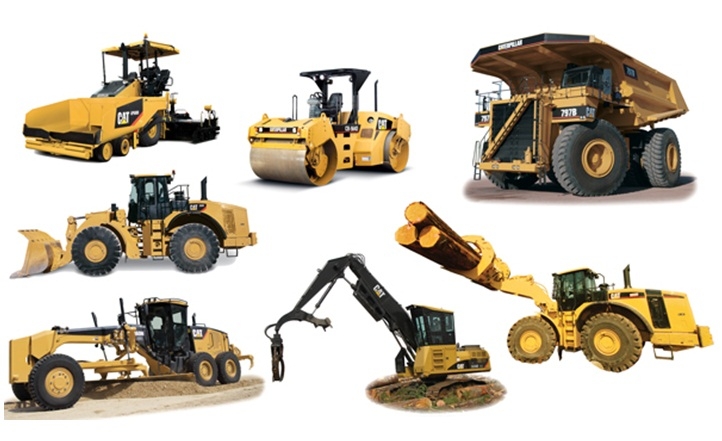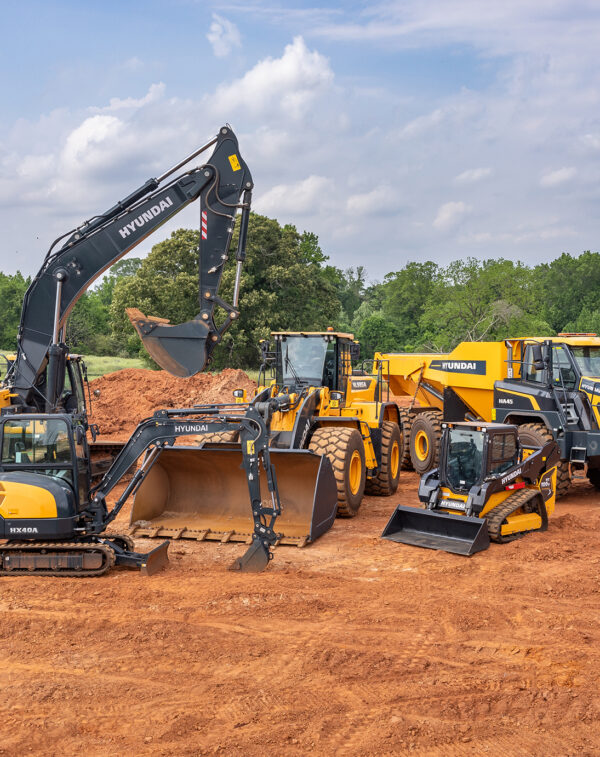Rental Company in Tuscaloosa AL: Top-Quality Equipment for Every Job
Rental Company in Tuscaloosa AL: Top-Quality Equipment for Every Job
Blog Article
Discovering the Financial Conveniences of Leasing Building And Construction Devices Compared to Having It Long-Term
The decision between leasing and owning construction equipment is pivotal for economic management in the market. Leasing deals immediate price financial savings and functional adaptability, permitting firms to allot resources much more efficiently. Understanding these nuances is crucial, particularly when thinking about how they straighten with certain task needs and economic techniques.

Price Comparison: Leasing Vs. Having
When evaluating the monetary effects of having versus renting out building equipment, a detailed cost comparison is crucial for making informed decisions. The choice in between having and renting can substantially impact a firm's lower line, and comprehending the associated prices is critical.
Leasing construction tools normally includes reduced upfront expenses, permitting businesses to allocate funding to other functional needs. Rental agreements usually consist of flexible terms, making it possible for companies to accessibility advanced equipment without long-term dedications. This adaptability can be especially useful for short-term tasks or varying work. However, rental expenses can accumulate gradually, possibly surpassing the expense of possession if tools is needed for a prolonged duration.
Conversely, owning building and construction tools requires a substantial first investment, together with recurring prices such as insurance coverage, devaluation, and funding. While possession can lead to lasting savings, it likewise locks up funding and may not supply the exact same level of versatility as renting. Additionally, owning tools requires a dedication to its utilization, which may not constantly align with job demands.
Inevitably, the choice to have or lease needs to be based upon an extensive analysis of particular job demands, economic capacity, and long-term critical objectives.

Upkeep Expenditures and Responsibilities
The choice in between renting out and possessing construction equipment not just entails economic factors to consider yet additionally incorporates continuous maintenance expenses and responsibilities. Owning tools calls for a substantial dedication to its upkeep, that includes routine inspections, repairs, and possible upgrades. These obligations can swiftly build up, leading to unanticipated expenses that can strain a budget.
In comparison, when renting out devices, maintenance is commonly the duty of the rental business. This arrangement permits specialists to avoid the monetary worry connected with wear and tear, along with the logistical difficulties of scheduling fixings. Rental contracts frequently consist of arrangements for upkeep, implying that specialists can concentrate on completing tasks rather than stressing about tools condition.
In addition, the diverse series of equipment readily available for rent makes it possible for companies to pick the most up to date versions with sophisticated modern technology, which can enhance performance and productivity - scissor lift rental in Tuscaloosa Al. By selecting services, companies can stay clear of the long-term obligation of devices devaluation and the associated upkeep frustrations. Ultimately, examining upkeep expenses and obligations is critical for making an informed decision concerning whether to rent out or possess building tools, significantly affecting total task costs and operational effectiveness

Devaluation Impact on Possession

A significant element to take into consideration in the choice to possess building devices is the effect of depreciation on overall possession expenses. Depreciation represents the decline in worth of the tools gradually, influenced by factors such as use, damage, and improvements in innovation. As devices ages, its market price reduces, which can substantially impact the owner's monetary setting when it comes time to trade the devices or market.
For building and construction firms, this devaluation can equate to substantial losses if the tools is not made use of to its max potential or if it becomes out-of-date. Owners should account for devaluation in their monetary projections, which can bring about higher overall prices compared to renting. In addition, the tax effects of devaluation can be complicated; while it may offer some tax obligation benefits, these are frequently balanced out by the reality of decreased resale worth.
Eventually, the burden of devaluation highlights the importance of recognizing the long-term economic commitment entailed in having building and construction devices. Firms should carefully examine how often they will certainly use the devices and the potential monetary influence of depreciation to make an enlightened decision aerial lift rental in Tuscaloosa AL regarding possession versus renting.
Monetary Adaptability of Renting
Leasing building and construction devices supplies considerable financial versatility, permitting firms to assign sources extra efficiently. This versatility is specifically crucial in a market defined by rising and fall project demands and varying work. By deciding to lease, services can avoid the considerable resources expense required for purchasing equipment, protecting cash money circulation for various other functional needs.
Additionally, renting equipment allows business to customize their tools selections to specific project requirements without the long-term commitment associated with ownership. This implies that companies can quickly scale their devices stock up or down based on present and anticipated project needs. Consequently, this flexibility reduces the risk of over-investment in equipment that might come to be underutilized or outdated gradually.
One more monetary advantage of renting is the possibility for tax obligation benefits. Rental repayments are typically thought about operating expenses, permitting instant tax deductions, unlike devaluation on owned and operated devices, which is topped numerous years. scissor lift rental in Tuscaloosa Al. This prompt cost recognition can better boost a business's cash placement
Long-Term Job Factors To Consider
When reviewing the long-term requirements of a building and construction company, the choice in between renting out and owning tools becomes a lot more intricate. For projects with extended timelines, buying devices might appear advantageous due to the capacity for reduced total prices.
Additionally, technological improvements posture a substantial consideration. The construction industry is developing quickly, with brand-new devices offering improved effectiveness and safety and security features. Renting out enables firms to access the most recent technology without committing to the high upfront costs related to acquiring. This versatility is especially useful for services that manage diverse projects requiring different kinds of devices.
In addition, monetary stability plays a vital role. Possessing devices frequently entails substantial capital expense and devaluation issues, while renting out enables more foreseeable budgeting and money circulation. Eventually, the choice in between renting out and owning ought to be lined up with the strategic objectives of the building and construction business, considering both expected and current job demands.
Final Thought
In final thought, renting out building and construction equipment provides significant monetary benefits over long-term possession. The minimized in advance prices, elimination of upkeep responsibilities, and avoidance of devaluation contribute to enhanced cash circulation and financial flexibility. scissor lift rental in Tuscaloosa Al. Moreover, rental repayments act as immediate tax reductions, better benefiting contractors. Inevitably, the decision to rent out as opposed to own aligns with the dynamic nature of building and construction projects, allowing for adaptability and accessibility to the current equipment without the economic burdens connected with ownership.
As devices ages, its market value diminishes, which can dramatically impact the owner's economic placement when it comes time to offer or trade the tools.
Renting building and construction devices provides substantial financial adaptability, enabling business to allot resources a lot more efficiently.Additionally, leasing equipment makes it possible for business to customize their devices options to details project needs without the long-term dedication connected with ownership.In verdict, renting out building tools uses considerable financial advantages over lasting ownership. Ultimately, the decision to lease rather than own aligns with the dynamic nature of building and construction tasks, enabling for flexibility and access to the most recent tools without the economic worries connected with possession.
Report this page